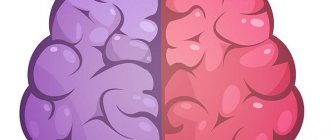Non-action among Taoists is one of the five main principles of thinking that can make life natural and calm. However, the principle has a very vague explanation, although it is practical. Non-action is the best way to interact with the surrounding reality; it is based on harmony. If you start using non-action constantly, then life itself will completely change, which will bring very good results.
“The perfect man, who is truly wise, commits no deeds. That is why it is the basis of the Universe."
Once again about Harmony
As you know, there are two basic forces in the Universe - Yin and Yang. They are completely opposite, they repel, fight with each other, and their mutual movement gives birth to life and all Being. Moreover, according to the principle of Harmony, any movement in any situation is aimed at balancing Yin and Yang. Therefore, when there is a lot of Yang, it reaches its limit and more Yin begins to flow into this situation in order to restore Harmony. And vice versa, when there is a lot of Yin - after reaching the limit - Yang enters.
Thus, everything ends sooner or later, everything sooner or later turns into its opposite. This is the basis of the natural order of things.
Taoist masters realized this within themselves, during meditation, and also realized it externally, observing the movement of life. Moreover, they saw that Yin and Yang move, necessarily going through five stages - five movements of qi: Water (mature Yin), Wood (young Yang), Fire (mature Yang), Earth (Harmony Point), Metal (young Yin) and so on in a circle. These five movements of qi are very widely used in Taoist practices, Chinese alternative medicine, feng shui and fortune telling, and much more. But it all ultimately comes down to Yin and Yang changes.
So, the movement of Yin and Yang is endless, they cannot be changed! And therefore Taoist masters follow these changes, and do not try to fight them. Ordinary people, under the influence of their selfish desires and delusions of the heart and consciousness, almost always try to retain the good, beneficial for themselves, and run away from the bad, unprofitable for themselves. Naturally, as long as such a person has the strength, he manages to avoid changes, but sooner or later they still overtake him. Such behavior only brings suffering, slows down a person’s improvement and leads him along the most difficult road of life.
Stages of development of Taoism
In the first century BC. e. Schools of Taoism began to appear. Over time, they changed, and some merged into one institution. Main institutions:
- School of Heavenly Mentors;
- Quanzhen;
- Maoshan;
- Lingbao.
The School of Heavenly Masters, or “Five Buckets of Rice,” was the first to teach the basics of Taoism. It was founded by patriarch and mountain hermit Zhang Daoling. Over time, it was divided into southern and northern. But then the establishment became united again, its name changed to Zhenyi.
In the southern regions, in the times after the dominance of the Mongol tribes, the Quanzhen school opened. Maoshan or Shangqin existed until the 14th century. Here students practiced communication with spirits and higher powers. Lingbao focused on meditation; it was more like a Buddhist school.
In the fifth century, the number of adherents of Taoism increased: they were joined by hermits who dreamed of longevity. The doctrine at this time turns into religion, and its goal becomes the desire for immortality. At that time there were only 250 treatises with basic definitions, principles and concepts. And today there are more than 1,500 books and essays.
Basic ideas of Taoism
Taoism is not considered a traditional religion. It is based on the principle of equality of humanity. Thanks to this, philosophy was studied by different categories of people. But in the Middle Ages, monasteries were built where only enlightened monks were allowed.
In the 17th century, the Qing dynasty ruled, which encouraged the persecution of philosophy. The rulers considered the teaching to be pseudoscience, so they ordered to burn books, destroy monasteries, and punish supporters of Taoism. Rehabilitation began only in the 60s of the last century. But modern philosophy is different. It was based on meditation and magical rituals.
The teaching became famous in the West thanks to its unique martial arts, breathing exercises, and Feng Shui.
Non-actions as naturalness
What is it like when a Taoist master is forced to live among people, go to work, feed his family, encounter different people, including those who do not care about the Harmony and Unity of all things? A Taoist master from the outside looks like an ordinary person, but his internal state is different and he interacts with the world through Non-action.
First of all, Non-action is natural! All actions of a Taoist master are subordinated to natural necessity. When he is hungry he eats, when he is tired he sleeps. If he has a family, he takes care of it, if he needs money, he earns it. But what then is the difference between a master and an ordinary person?!
When I walk in the park, I watch squirrels, how they run after each other in spring and summer, how they hide supplies in the fall, how they come closer to people in winter, allowing themselves to be fed. This is an example of naturalness. Squirrels live according to the seasons, use what is “at hand” to solve their problems and do not try to resist changes, but follow them.
The average person is too often dissatisfied, even if he has a lot, he always wants more. He does not look at how his desire is consistent with the current situation; he buys on credit what he can do without. When he doesn’t have enough of something, he still continues to deplete it, for example, by continuing to shout at his interlocutor, by continuing to ruin his health, by continuing to strain at work (when he has little strength), by continuing to devote less and less time to his wife or husband.
When a person destroys Harmony without understanding what he is doing, it is natural for him. Our actions are limited by our current level of development. But if a person knows and continues to destroy Harmony in a given situation, then he is not acting naturally, he is indulging his ego. This is how a Taoist master differs from a person! Not at all because he is super perfect, but because when the master realized his error, he chooses to act according to this knowledge, returning to naturalness and Harmony.
Wu-wei
This term has other meanings, see Wu Wei (meanings).
This term has other meanings, see Non-doing (meanings). Wu-wei (Chinese trad. 無為, ex. 无为, pinyin: wúwèi) - contemplative passivity. This word is often translated as “non-doing,” another translation option is “unmotivated” or, according to I. A. Arseev, “spontaneity.” The most important quality of not doing is the absence of reasons for action. There is no thought, no calculation, no desire. Between the inner nature of a person and his action in the world there are no intermediate steps at all. The action occurs suddenly and, as a rule, reaches the goal in the shortest possible way, since it is based on perception. The antipode of "wu-wei" is "wei".
Inaction as artlessness
When I am faced with a problem, I often try to find some unusual solution for it. Of course, provided that the task is interesting to me, otherwise I use a completely routine method of action. Most likely, pride, or maybe something else, sometimes makes me overly complicate my actions and set too high goals.
I have seen similar things in other people. Some people love logic and science too much and try to delve into everything too deeply. Such people, instead of just cleaning the apartment, are ready to come up with whole schemes for organizing things in the house and cleaning algorithms. Some know the language well and notice the slightest errors in the text, but alas, they often underestimate the meaning of the text itself. As they say, they cannot see the words behind the letters. And there are those who cling to words and begin to argue about them (the process of argument itself is more important to them than the truth) - such people do not see the meaning behind the words.
Inaction is artless. The river does not make complex plans and does not make calculations to lay out its course. It flows where it is impossible not to flow - in the lowlands, where it is empty and there is no barrier, there is no resistance and where the force of gravity itself helps it. We often create resistance within ourselves, which is why all these complex schemes, plans, tricks, and life hacks are born. Instead of following the current situation, we try to lead: to invent something and act against the forces of Yin and Yang, which move in a very specific way inside and around us.
If you begin to act artlessly, you will do things in a way that will not encounter undue resistance. Moreover, as you cleanse your heart and consciousness of obscurations, you will not encounter resistance at all, since you will act at a stage when nothing has yet manifested itself outside. This applies to everything: changing yourself, cleaning, work, business, relationships with other people, relaxation, etc.
To be artless, to solve all problems simply, with minimal effort, all you need is to use the driving forces of Harmony, and not act in your own way, ignoring them.
...world affairs develop not according to anyone's design, but due to their own nature. Nothing can help change the myriads of living beings, so all that remains is to comprehend the very essence and return to it. Therefore, sages cultivate their inner core rather than adorn themselves with external trinkets. They activate their vital spirit and bury their learned opinions. Therefore they are open and inventive, although there is nothing that they cannot do; they have no rules, although there is nothing uncontrollable in their lives.
Avoiding creativity means avoiding showing off in front of others. Not having rules means not betraying nature. The absence of uncontrollability means that they act in mutual agreement with living beings.
Treatise by Wen Tzu, passage 2
Inaction as non-struggle and serenity
Since all changes in the world occur according to the movement of Yin and Yang, it is quite logical to stop fighting them and start following them. Instead of swimming against the current, it is much easier and more enjoyable to swim with the flow. True, in many books and in all kinds of trainings on goal setting and achievement, this is presented as something negative. They constantly tell you to take responsibility for your life, get off the couch, get out of your comfort zone, etc.
They are right about one thing - it’s worth getting off the couch and moving with Yin and Yang. But! There is no need to take responsibility for your life!
How?! After all, then a person can put the kettle on the fire and go to the store, since he is irresponsible. Meanwhile the house will explode. Or such a person can give a small child a fork instead of a toy and sit him next to the outlet to play, while he goes to watch football and drink beer... In such situations, no responsibility will help such a person.
In my opinion, responsibility is a person’s ability to answer, first of all, to himself why everything turned out this way and not otherwise. What actions or inactions led to the current state of affairs. That is, in essence, responsibility is the same thing as awareness.
Why do people complain about their fate? They always blame the government, other people, circumstances, anything, but not themselves? Such people are called irresponsible because they cannot give themselves an answer to what is the reason for all this. They cannot understand cause and effect, see the changes in Yin and Yang. After all, in fact, the cause of any manifestation of Yang is Yin, and the cause of any manifestation of Yin is Yang! That is why the law of Harmony is so simple, but very important. Having understood what Harmony is, you can begin to learn to feel the changes of Yin and Yang and follow them. Having realized Harmony, it becomes easy to predict the future: after Yin there is always Yang, after Yang there is always Yin and this cycle is eternal!
Since these changes are inevitable, there is no need to fight them. If you give up the fight, then serenity and Harmony will automatically be restored in your heart and mind. It is important to understand that by giving up the fight you do not stop acting! The Taoist master does not contradict the natural course of things, but gives them form according to his nature, his talents and his preferences. It is precisely the giving of shape to things in the process of change that is the creative manifestation of the master - his social (worldly) self-realization.
Alas, numerous trainings and books that get us off the couch impose the idea that we can achieve anything we want, we just need to take responsibility, roll up our sleeves and work hard. This idea is attractive, especially in youth, while there is more than enough energy, full of optimism, and the heart is not yet darkened by the bitterness of defeats











